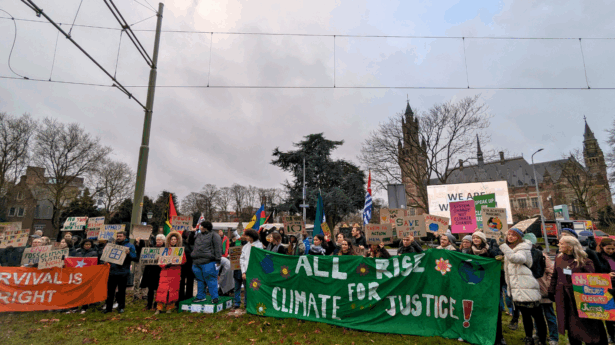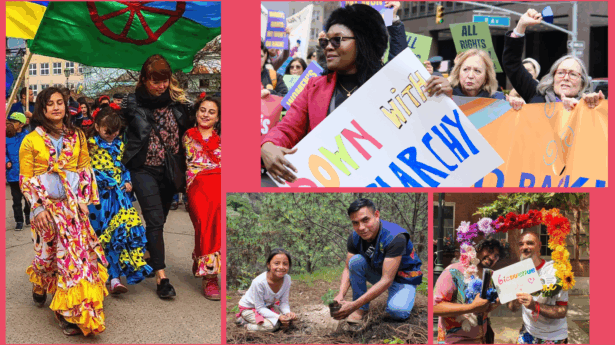The Unitarian Universalist Service Committee advances human rights through grassroots collaborations.
Bolivian Voters Approve a Human Right to Water
January 9, 2009
Human rights activists are celebrating a major victory in the global struggle for water justice after voters in Bolivia approved a new constitution that enshrines access to safe, sufficient, and affordable water as a basic human right.
In what may signal a major reordering of political and social culture in the Latin American country, Bolivian citizens endorsed the constitution that officially recognizes indigenous rights, reserves seats in the Bolivian Congress for indigenous people, and expands public control over natural resources.
Although final results of the January 25 voting are not yet available, the hotly contested issue of a new constitution was winning by a significant enough majority for President Evo Morales to declare victory. In addition to providing new political powers to the country’s indigenous population, the new constitution was a major triumph for Morales, who will now be able to seek a second five-year term as president. The document also affirms that “water is a fundamental human right that may not be controlled by private companies.”
UUSC’s Environmental Justice Program vigorously supports the human right to water, which was endorsed in 2002 by the United Nations Economic, Social, and Cultural Rights Council. In Bolivia, UUSC has supported the grassroots organizing of FEJUVE in El Alto, La Paz, to counteract privatization and enshrine the right to water.
Patricia Jones, manager of UUSC’s Environmental Justice Program, said, “The adoption of the new constitution in Bolivia is an important first step in ensuring that all citizens, especially low-income individuals and families, have access to sufficient water to meet their basic human needs.” She said this shows that Bolivia is a leader in building the global momentum for water justice.
“This vitally important statement of principle will be followed by enactment and enforcement of national and local laws to transform this ideal into a reality for all Bolivians, especially for those whose needs historically have been neglected by powerful political and corporate interests,” said Jones.
Pablo Solón-Romero, Bolivia’s deputy representative to the United Nations, said the new charter drew on the language of the Declaration on the Rights of Indigenous Peoples, adopted two years ago by the U.N. General Assembly.
“The new constitution expands, extends and deepens the rights of all Bolivians, especially indigenous people and other groups,” he said. Among other things, Bolivia’s new constitution guarantees ownership of natural resources, as well as ownership of state enterprises, by the Bolivian people. According to Solón-Romero, this is “to prevent the recurrence of any processes of privatization of state corporations and natural resources that we saw over the past 25 years.”
The voting in Bolivia follows a similar successful referendum last September in Ecuador in which voters adopted a new constitution that affirms that each person has a right to access safe, sufficient, affordable water for daily human needs. UUSC partner El Movimiento Mi Cometa was a leader in that campaign.

